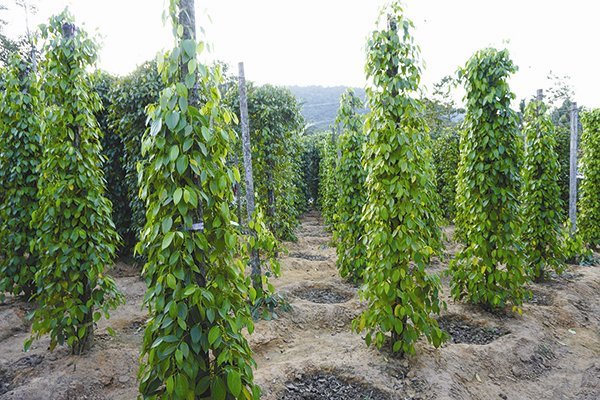The EU has just announced amendments to Annexes II, III and IV of the Regulation No. 396/2005 regarding the allowed residue levels of chemicals on some products such as vegetables, fruits and food.

The amendments, according to Vuong Truong Giang from the Ministry of Agriculture and Rural Development (MARD), will have an impact on some farm products Vietnam exports to the EU.
Vietnam now mostly exports coffee, pepper, cashew nut, rice, dragon fruit and some spices and vegetables.
A report from the ministry shows a significant decrease in the export of these products last February. Vietnam, for instance, exported 12,000 tons of pepper in February, worth $35 million, a sharp 20 percent decrease in value in comparison with the same period of 2018.
|
The total export turnover of farm, forestry and seafood products in the first two months of 2019 was $5.5 billion, falling by 1.6 percent compared with the same period last year. Of this, the value of the key export items was $2.71 billion, or 10.1 percent lower. |
The total export turnover of farm, forestry and seafood products in the first two months of 2019 was $5.5 billion, falling by 1.6 percent compared with the same period last year. Of this, the value of the key export items was $2.71 billion, or 10.1 percent lower.
The EU is the biggest farm produce export market for Vietnam, but it is also one of the choosiest clients with strict requirements on food safety, labeling and environmental conditions.
Predicting that the adjustment would not have an ‘overly big impact’ on Vietnam’s key farm export items, Giang warned that the EU ‘will continue checking and amending the regulations related to technical barriers to imports’.
According to Giang, many Vietnam’s enterprises still don’t care much about the ‘relatively regular’ changes, especially since most of them are small and micro businesses.
“What Vietnam needs to do is follow the amendments from the EU to control product quality and satisfy new requirements,” he said.
Minister of Agriculture and Rural Development Nguyen Xuan Cuong, at a forum on farm produce exports held recently, affirmed that other countries are strengthening their protection over domestically made farm produce by setting stricter requirements on quality and safety.
The pressure on Vietnam’s enterprises will increase once the EU-Vietnam FTA (EVFTA) is approved by the EU, though the FTA, with the tariff cut, will pave the way for Vietnam to export farm produce to the large market.
Pham Thi Du from the Trade University warned that the origin rules, technical barriers, and quarantine requirements will be worrisome to many enterprises.
According to the expert, the input materials for Vietnam to make products for export are mostly from China, ASEAN and countries which don’t have FTAs with Vietnam.
Vietnam, for example, imports 63 percent of raw cashew nuts needed from the Ivory Coast, Ghana and Nigeria.
RELATED NEWS
Farm exports plunge, domestic sales stuck
Which way for Vietnam’s farm produce?
DNSG
 The EU is strengthening the protection of local farm produce by setting high requirements on food safety and traceability, thus putting pressure on Vietnam’s farm exports.
The EU is strengthening the protection of local farm produce by setting high requirements on food safety and traceability, thus putting pressure on Vietnam’s farm exports.